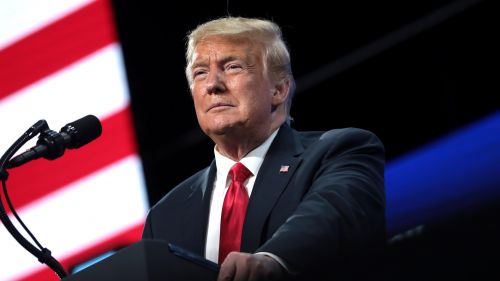The Foreign Policy Blob Is Bigger Than You Think

Survey data shows the American public is more attuned to the view of "The Blob," those working in government, than to President Trump’s views.
"The Blob"
It is an open secret that the so-called foreign policy establishment did not think Donald Trump was qualified to become US president. While it is not too surprising that Democratic foreign policy experts would oppose a Trump presidency, the wide range of criticism from Republican foreign policy figures is more remarkable. In an illustrious letter published on the blog War On the Rocks, more than one hundred Republican foreign policy professionals signed an open letter in March 2016 opposing Donald Trump because “he would use the authority of his office to act in ways that make America less safe, and which would diminish our standing in the world.”
The feeling was apparently mutual. As a candidate, Trump pledged to “drain the swamp” in Washington, DC and said he would never take foreign affairs advice from “those who have perfect resumes but very little to brag about except responsibility for a long history of failed policies and continued losses at war.” To be fair, Trump is not alone in criticizing the foreign policy establishment. President Obama also talked about breaking with “the Washington Playbook” when he decided to stand down in Syria in an interview with the Atlantic. President Obama’s Deputy National Security Advisor Ben Rhodes even went so far as to nickname the US foreign policy establishment as “The Blob” in a New York Times Magazine profile.
The June 25-October 25, 2016 Chicago Council Leadership Survey, conducted in partnership with the Texas National Security Network, illustrates that the Blob exists. There is indeed a bipartisan consensus among US foreign policy opinion leaders on the benefits of free trade, active US engagement with the world, and maintaining alliances. In fact, compared to US public opinion, the views among the Republicans and Democrats in the foreign policy elite more often synchronized with each other more than with the portion of the general public that affiliated with their same party.
Some may interpret the election of Donald Trump as the general public’s rejection of this bipartisan consensus, and think that Trump’s campaign positions about the US role in the world better reflected the typical American. But the Council surveys conducted before the November election showed that on the broad outlines of US foreign policy, the general public was more attuned to the views of these foreign policy opinion leaders than to President Trump’s views.
The American public broadly favored active international engagement, continuing alliances and recognized many benefits to free trade—though foreign policy opinion leaders are more committed to these ideas than the public. Additionally, similarly-sized majorities among both opinion leaders and the American public considered international terrorism and nuclear proliferation to be critical threats.
Perhaps not coincidentally, the areas where leader-public opinion gaps were most conspicuous were related to issue areas where Donald Trump’s messaging had been quite pronounced. The American public and opinion leaders were divided over the importance of protecting American jobs, the importance of protecting US allies’ security, and US immigration policy.

